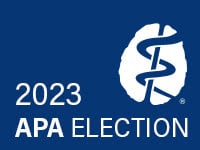Ecopipam May Reduce Tics in Children With Tourette Syndrome

Youth with Tourette syndrome who take ecopipam (a selective dopamine 1 receptor antagonist) may experience a decrease in tics, suggests a study published yesterday in Pediatrics. The study was funded by Emalex Biosciences, which is developing ecopipam.
“Treatment decisions for [Tourette syndrome] require an assessment of disease severity and burden, comorbid conditions, and the concerns of patients and their caregivers regarding the cost, time, and side effects of treatments,” wrote Donald Gilbert, M.D., M.S., of Cincinnati Children’s Hospital Medical Center and colleagues. Most medications approved by the Food and Drug Administration for Tourette syndrome are antipsychotics, the authors noted, and “their use is limited by the risk of weight gain, metabolic changes, and drug-induced movement disorders.”
Gilbert and colleagues recruited participants aged 6 to 17 from 68 sites in the United States, Canada, Germany, France, and Poland between May 2019 and September 2021. All participants had Tourette syndrome and a minimum score of 20 on the Yale Global Tic Severity Score, Total Tic Score (YGTSS-TTS), on which a higher score indicates a more severe tic. Further, all participants experienced tics of sufficient severity to result in subjective discomfort, sustained social problems, emotional problems, and/or functional interference with daily activities.
Following a 28-day screening period and a baseline visit, participants were randomly assigned to receive either ecopipam or a matching placebo for a 4-week titration period followed by an 8-week treatment period. Ecopipam dosages were adjusted based on the participants’ weight, with doses ranging from 37.5 mg to 200 mg as a single nightly dose. At the end of the treatment period, participants were titrated off either ecopipam or the placebo at a rate of 25 mg per day. The authors assessed participants at weeks 4, 6, 8, and 12, then conducted follow-up visits at 7, 14, and 30 days after the participants’ last dose of medication.
A total of 153 participants were randomized to either the ecopipam group (n=76) or the placebo group (n=77). There was a statistically significant improvement in YGTSS-TTS scores among participants in the ecopipam group compared with those of participants in the placebo group. There was a 30% reduction from baseline to week 12 in YGTSS-TTS scores among participants in the ecopipam group, with the authors observing a significant benefit at the first evaluation (week 4), which then was sustained across all visits.
The majority of adverse experiences reported in both groups were mild to moderate during the study, with the most common including headaches, insomnia, fatigue, and somnolence. At week 12, mean body weight increased from baseline by about 4 pounds in the ecopipam group and over 5 pounds in the placebo group.
“Ecopipam may be a safe and effective treatment of [Tourette syndrome] with advantages over other currently approved therapeutic agents,” the authors concluded.
For related information, see the Psychiatric News article “‘Outbreak’ of Sudden Tics Among Teen Girls Has Surprising Global Similarity.”
(Image: iStock/Tassii)
Voting Now Open for APA’s 2023 Election

APA invites all APA voting members to participate in its 2023 election. Please take the time to learn about the candidates and cast your ballot. Your vote has an impact on the future of APA and psychiatry.





